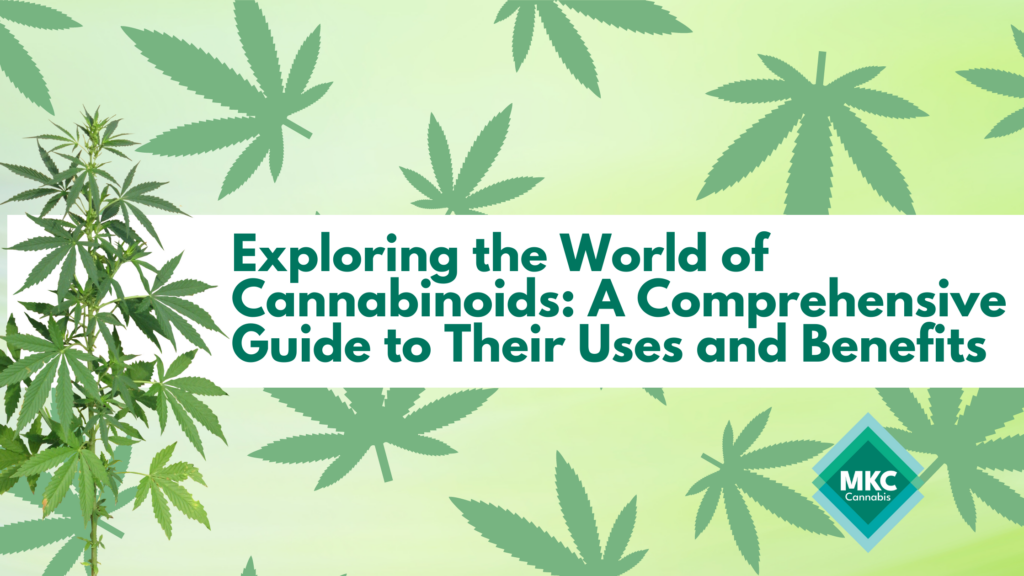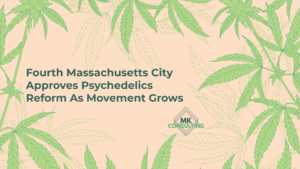Cannabinoids are a diverse group of compounds found in the cannabis plant that has garnered significant attention for their potential therapeutic uses. With over 100 known cannabinoids and more being discovered, these naturally occurring compounds are revolutionizing the way we think about health and wellness. In this blog post, we will delve into the world of cannabinoids, exploring their various types and the benefits they may offer.
Delta-9-Tetrahydrocannabinol (THC)
THC is the most well-known and psychoactive cannabinoid found in the cannabis plant. It is responsible for the “high” associated with marijuana use. THC has been shown to have numerous potential medical applications, including:
Pain relief: THC can help alleviate chronic pain and inflammation, making it a popular option for those suffering from arthritis and neuropathy.
Nausea and vomiting: THC can benefit patients undergoing chemotherapy, as it can help reduce nausea and vomiting associated with treatment.
Appetite stimulation: THC is known for stimulating appetite, which can benefit individuals experiencing weight loss due to conditions like cancer or HIV/AIDS.
Delta-8-Tetrahydrocannabinol (D8THC)
Delta-8-THC is a less potent psychoactive cannabinoid compared to Delta-9-THC. It offers similar benefits but with a milder psychoactive effect, making it more suitable for those who prefer a less intense high. Some potential benefits of Delta-8-THC include the following:
Anxiety relief: Delta-8-THC may help reduce anxiety and stress without causing the intense psychoactive effects associated with Delta-9-THC.
Pain relief: Delta-8-THC can also help with pain and inflammation like its more potent counterpart.
Neuroprotective effects: Research suggests that Delta-8-THC may have neuroprotective properties, making it a potential candidate for treating neurodegenerative diseases.
Cannabidiol (CBD)
CBD is a non-psychoactive cannabinoid that has gained immense popularity for its potential therapeutic benefits. Some of the possible uses of CBD include:
Epilepsy: CBD effectively reduces seizure frequency in patients with certain forms of epilepsy, such as Dravet syndrome and Lennox-Gastaut syndrome.
Anxiety and depression: CBD may help alleviate symptoms of anxiety and depression by interacting with serotonin receptors in the brain.
Anti-inflammatory properties: CBD can help reduce inflammation, making it a potential option for those with arthritis.
Cannabinol (CBN)
CBN is a mildly psychoactive cannabinoid produced as THC degrades over time. It is best known for its soothing effects, making it a potential sleep aid for those with insomnia. Other potential benefits of CBN include the following:
Antibacterial properties: CBN has been shown to have antibacterial properties and may be effective in fighting off drug-resistant bacteria.
Neuroprotective effects: Like Delta-8-THC, CBN may also possess neuroprotective properties.
Cannabichromene (CBC)
CBC is a non-psychoactive cannabinoid that is believed to have several potential therapeutic benefits, including:
Anti-inflammatory properties: CBC may help reduce inflammation, making it a potential option for those with inflammatory conditions.
Neurogenesis: Research suggests that CBC may promote the growth of new brain cells, which could benefit those with neurodegenerative diseases.
Cannabigerol (CBG)
CBG is another non-psychoactive cannabinoid that has shown promise for various therapeutic applications. As the “parent” of other cannabinoids, CBG is present in low concentrations in most cannabis strains but has a wide range of potential benefits, including:
Anti-inflammatory properties: Like many other cannabinoids, CBG may help reduce inflammation, benefiting individuals with inflammatory conditions.
Glaucoma: Research suggests that CBG can help lower intraocular pressure, which may benefit individuals with glaucoma.
Antibacterial properties: CBG has shown promise in combating antibiotic-resistant bacteria, making it a potential option for treating infections.
tetrahydrocannabinol acid (THCA)
THCA is the acidic precursor to THC, meaning it is non-psychoactive in its raw form. Once heated or exposed to sunlight, THCA converts to THC. Potential benefits of THCA include:
Anti-inflammatory properties: Like many other cannabinoids, THCA may help reduce inflammation, making it a potential option for those with inflammatory conditions.
Antiemetic properties: THCA may help reduce nausea and vomiting, potentially benefiting patients undergoing chemotherapy.
Cannabidiolic Acid (CBDA)
CBDA is the acidic CBD precursor found in raw cannabis plants. When heated or exposed to sunlight, CBDA converts to CBD. Some potential benefits of CBDA include the following:
Anti-inflammatory properties: CBDA may help reduce inflammation, making it a potential option for those with inflammatory conditions.
Antiemetic properties: Like THCA, CBDA may also help reduce nausea and vomiting.
Tetrahydrocannabivarin (THCV)
THCV is a psychoactive cannabinoid structurally similar to THC but with slightly different effects. Some potential benefits of THCV include the following:
Appetite suppression: Unlike THC, THCV has been shown to suppress appetite, making it a potential option for those looking to manage their weight.
Blood sugar regulation: Research suggests that THCV may help regulate blood sugar levels, making it a potential option for those with diabetes.
Cannabidivarin (CBDV)
CBDV is a non-psychoactive cannabinoid that is structurally similar to CBD. It has been studied for its potential therapeutic applications, including:
Epilepsy: Like CBD, CBDV has shown promise as a potential treatment for certain forms of epilepsy, such as Dravet syndrome and Lennox-Gastaut syndrome.
Autism spectrum disorder (ASD): Preliminary research suggests that CBDV may help improve some symptoms of ASD, such as repetitive behaviors and social functioning.
Conclusion:
The world of cannabinoids is vast and complex, with each compound offering unique properties and potential therapeutic benefits. As research continues to uncover these compounds’ myriad uses, our understanding of their potential applications will only continue to grow. Whether you’re seeking relief from pain, anxiety, or inflammation or looking to improve neurological function, the diverse world of cannabinoids holds great promise for improving overall health and well-being.







